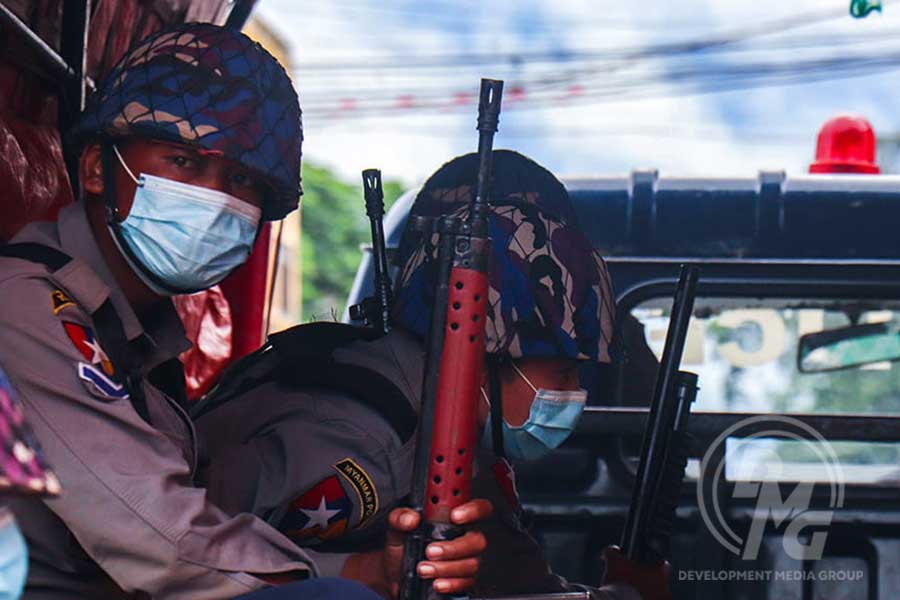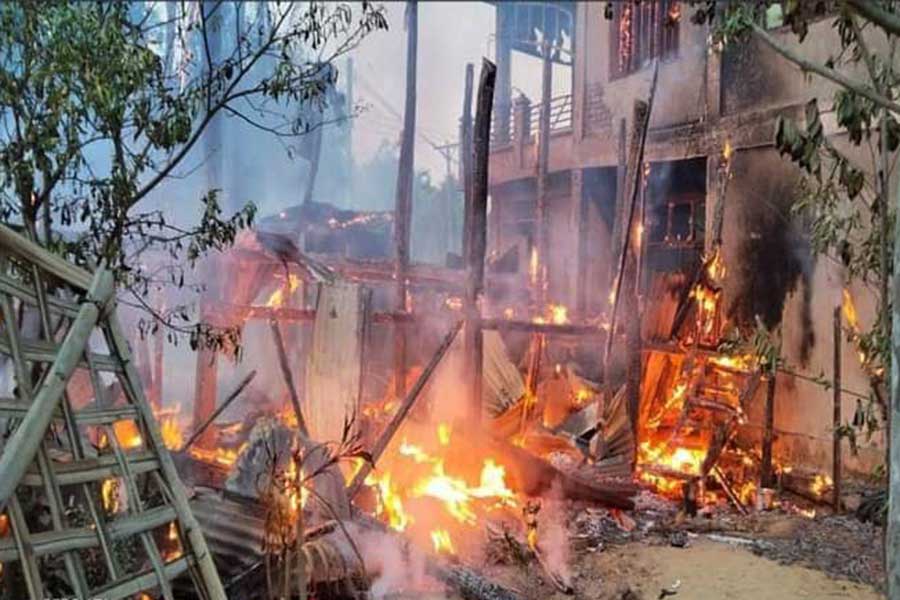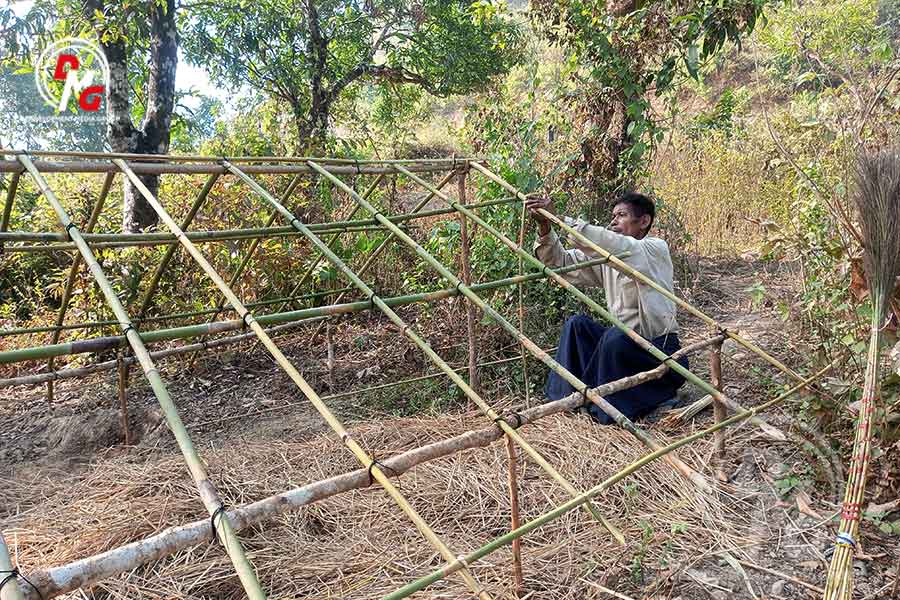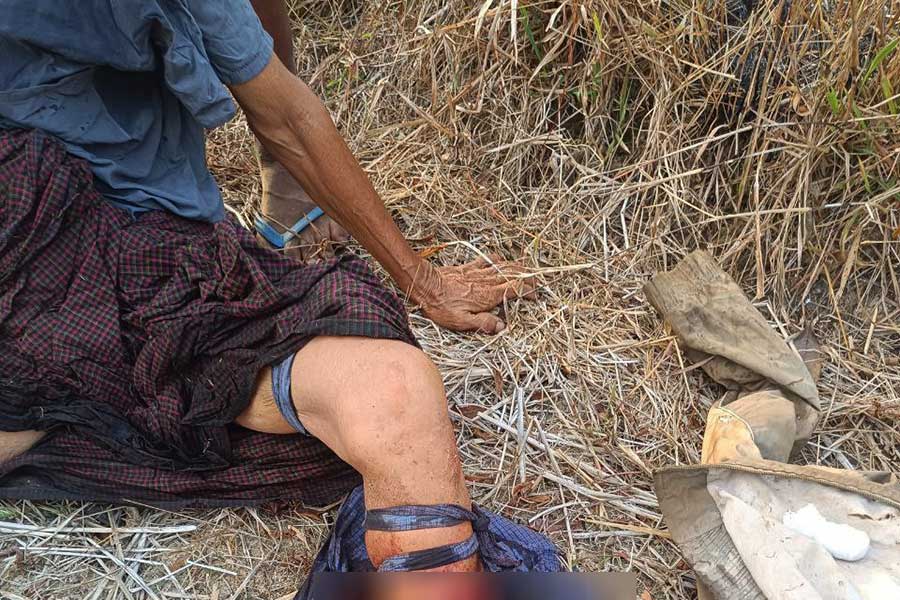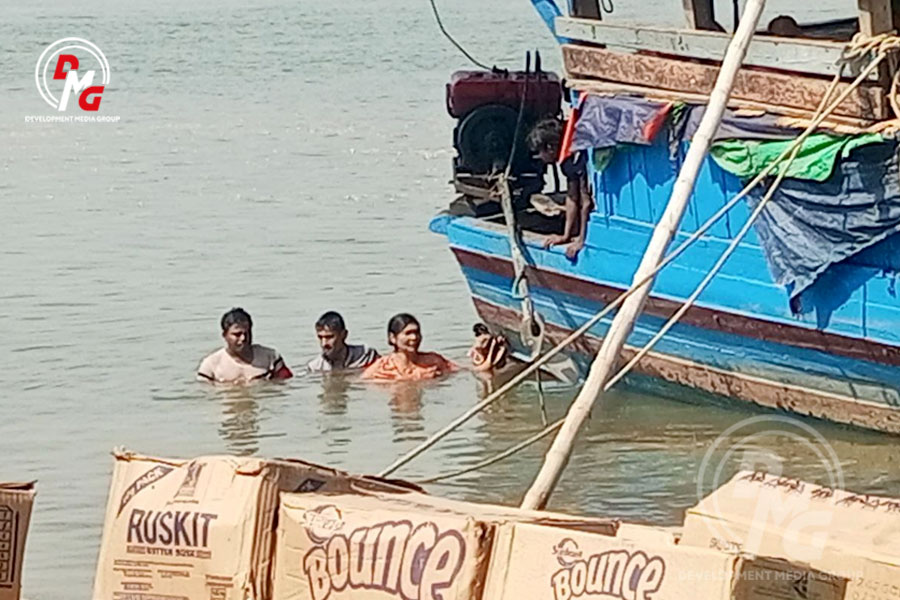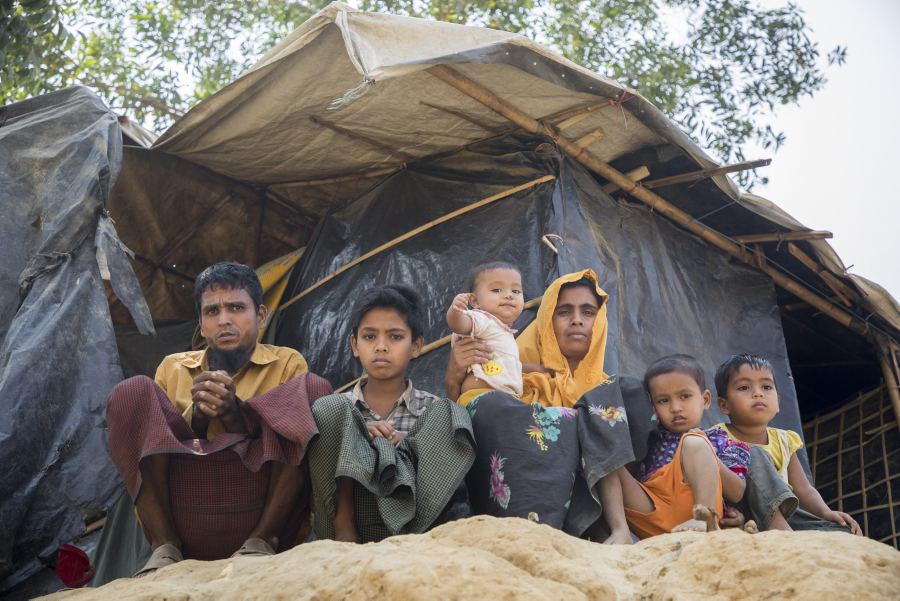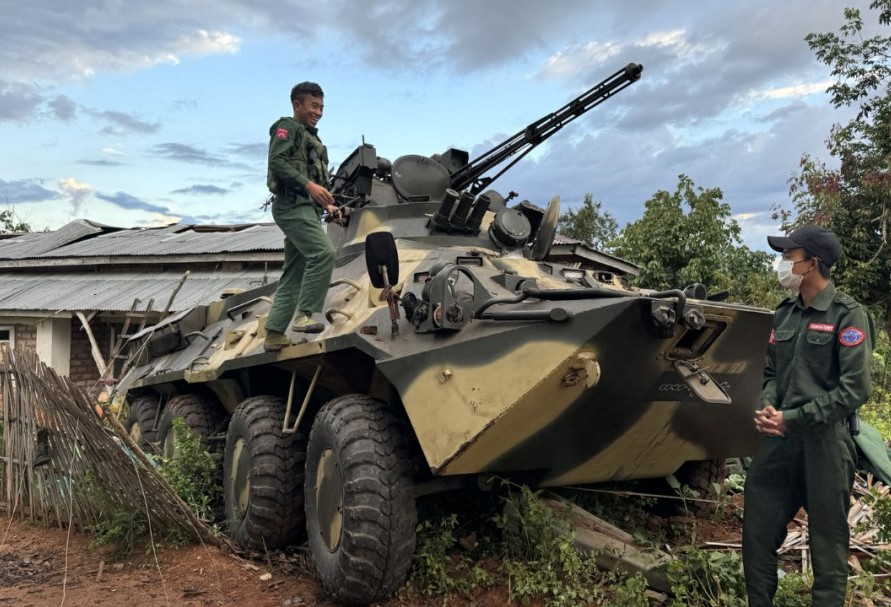- Thousands of houses torched, bulldozed by junta in Buthidaung
- Driver killed, two injured as junta soldiers open fire on bus in Thandwe Twsp
- Regime shelling kills two civilians, injures another in two Arakan State townships
- Septuagenarian loses leg in landmine explosion in Kyaukphyu Twsp
- Muslim communities accuse regime of stoking racial strife
Illegal logging plagues remote Gwa Twsp village-tract
Illegal logging is rampant in Bawin Chaung village-tract, part of Arakan State’s Gwa Township, according to local sources and evidence obtained by DMG.
24 Jan 2022
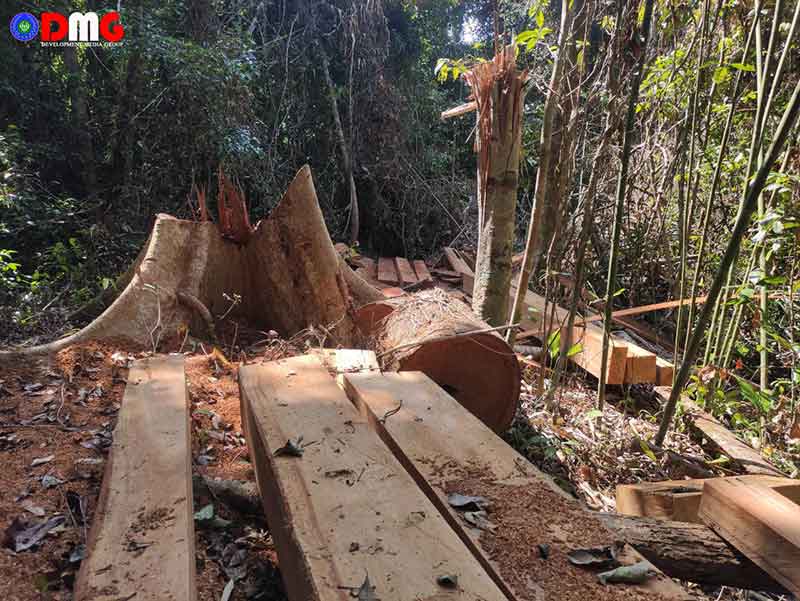
DMG Newsroom
24 January 2022, Gwa
Illegal logging is rampant in Bawin Chaung village-tract, part of Arakan State’s Gwa Township, according to local sources and evidence obtained by DMG.
Illegal loggers set up makeshift tents near Kayin Chaung village in Bawin Chaung village-tract, where they proceed to cut down trees and then use a backhoe to create a rudimentary road in order to remove the timber in trucks, according to locals.
About 50 people were harvesting timber from the area using chainsaws, and hundreds of tonnes of logs were being extracted, said U Hla Kyar, a community leader from Kayin Chaung village.
“When we visited, we first found five camps with six people in the forest. Elsewhere, we found nine camps. When we talked to the people in one camp, they said that they had extracted more than 100 tonnes of timber,” he told DMG.
“They are cutting down either big or small trees, without categorising them. There will be thousands of tons of unprocessed timber,” he predicted.
Kayin Chaung village is located in a remote area that is difficult to access by road.
U Maung Win, a resident of Kayin Chaung village, said that locals were having difficulty finding food and shelter due to the felling of trees.
“We rely on this forest for our livelihood. Now we are struggling to make ends meet as trees are being cut down. Therefore, we want the relevant authorities to put an end to the illegal logging,” he explained.
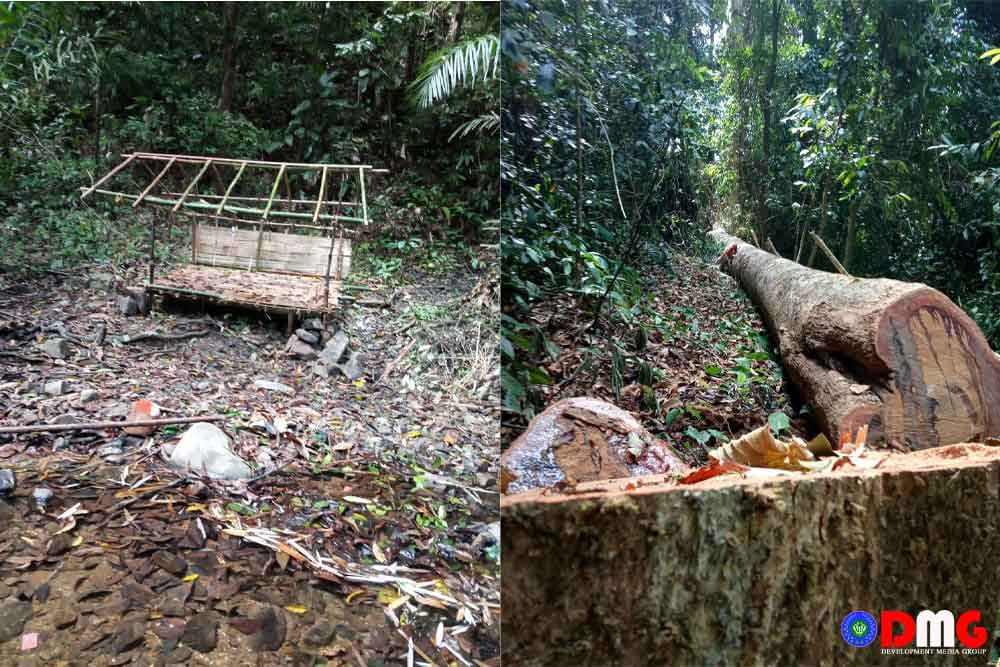
Locals have also said that wild elephants living in the shrinking forest often venture close to the village due to illegal logging, sometimes causing panic among villagers.
U Thein Naing, an official from the Forest Department in Gwa Township’s Kyeintali town, told DMG that rangers are pursuing as many illegal loggers as they can, but have struggled to reach the township’s most remote areas.

